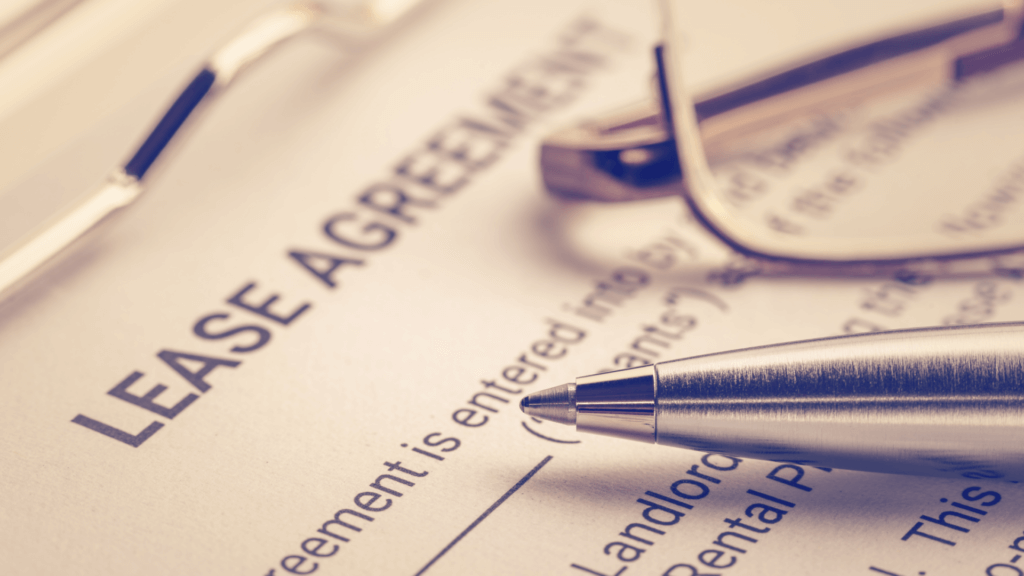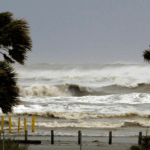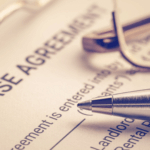
Many commercial leases contain a common contract term called a force majeure clause that can relieve the parties involved of some or all of their obligations under the lease. Knowing what this clause entails in commercial leases can help landlords be better prepared when a situation arises where a tenant may invoke the clause.
What is Force Majeure?
Force majeure refers to a French term that means ‘greater force’ and is related to the concept of an “act of God.” Traditionally, a force majeure clause in a commercial lease excuses the tenant’s performance if a certain “act of God” occurred, such as an extreme weather event. Some force majeure clauses have been deemed to include actions attributable to human behavior, such as governmental actions, actions of war or terrorism, labor strikes, rioting, or other defined activities. Depending on the language of the applicable force majeure clause, a tenant may argue that COVID-19 constitutes an event that triggers the clause, and thus excuses the tenant’s performance under the lease.
Obligation to pay rent usually not absolved by a force majeure event
Most commercial leases include a “force majeure” clause that operates to either temporarily delay or excuse certain obligations while a business is closed due to a force majeure event. Most force majeure clauses in commercial leases, however, expressly exclude payment of rent as one of the obligations excused. That is, even if a business cannot remain open to sell its product or provide a service – a requirement under a typical lease that might be excused by a force majeure event – most leases will still require full payment of monthly rent. And so even if COVID-19 is deemed a force majeure event, depending on the language of the lease, this is unlikely to excuse a tenant’s payment of rents.
Force Majeure Events
In order for a force majeure clause to be invoked, the triggering event must have resulted in the shutdown of business operations that left one or more parties unable to meet its contractual obligations. A party’s ability to claim relief for a force majeure event ultimately depends on the terms of the contract, as each force majeure provision has its own terms and context. Certain criteria must typically be met in order for a force majeure event to have occurred, including:
- The event must be beyond the reasonable control of the affected party.
- The affected party’s ability to perform its obligations under the contract must have been prevented, impeded, or hindered by the event.
- The affected party must have taken all reasonable steps to avoid or mitigate the event and/or its consequences.
Force Majeure and COVID-19
The COVID-19 pandemic has left parties on all sides confused and concerned about whether or not this virus constitutes a force majeure event. Ultimately, this will depend on the language of the commercial lease and whether or not COVID-19 falls within the scope of that lease’s force majeure clause. Because of this, force majeure events and COVID-19 should be considered on a case-by-case basis.
For instance, if a clause within a commercial lease specifically lists ‘pandemics or pandemic events’ as force majeure events, then COVID-19 would qualify since it was declared a public health emergency. However, if the commercial lease does not specifically state ‘pandemics or pandemic events,’ it can be difficult to prove COVID-19 meets the requirements of a force majeure event unless the lease states that unexpected governmental action qualifies. Since during the spring and summer months, government-mandated stay-at-home orders left many businesses inoperable for some time, the pandemic could be considered a force majeure event that prohibited the parties from performing their contractual obligations under a lease.
Texas Commercial Lease Dispute Attorneys
Importantly for landlords, force majeure clauses rarely will allow commercial tenants to forgo rent payments, even if other tenant obligations are excused by the force majeure event. If a tenant claims they no longer have to pay rent due to a force majeure event, landlords should seek the legal counsel of an experienced commercial lease dispute attorney.
At Raizner Law, we understand just how difficult the ongoing pandemic has been for business owners. While many commercial tenants attempt to wrongfully forgo rent payments or break their leases entirely, landlords are often left to fend for themselves. If you are a commercial landlord struggling to collect rent, you could be entitled to financial compensation. Contact the attorneys at Raizner Law today to discuss your case.


